GTR launch campaign to reduce maternal mortality in Latin America and the Caribbean
Every hour, a woman loses her life in the region due to complications in pregnancy, childbirth or postpartum, the vast majority of which are preventable.
Washington DC, March 8, 2023 (GTR) – The Regional Task Force for the Reduction of Maternal Mortality (GTR, by its Spanish acronym), today launched a campaign to encourage countries in Latin American and the Caribbean to reduce maternal mortality, which increased by 15% between 2016 and 2020.
Around 8,400 women die each year in the region from complications in pregnancy, childbirth and postpartum. High blood pressure, severe bleeding, and complications from unsafe abortion are the most common causes. However, nine out of ten of these deaths are preventable through quality care, access to contraception and by reducing inequities in access to care.
“Too many women, particularly indigenous, Afro-descendant, migrant, low-income and less educated women, continue to die during pregnancy and childbirth”, Dr. Jarbas Barbosa, PAHO Director, said during the launch of the campaign on International Women’s Day. “It’s time to urgently invest in maternal health and change this unacceptable reality”.
Zero Maternal Deaths. Prevent the preventable seeks to accelerate progress towards the regional goal of less than 30 maternal deaths per 100,000 live births outlined in PAHO’s Sustainable Health Agenda for the Americas. Last year, the maternal mortality ratio (i. e., the number of maternal deaths per 100,000 live births) in Latin America and the Caribbean was 68 per 100,000 live births.
The COVID-19 pandemic caused a 20-year setback in maternal health in the region, with a 15% increase in maternal mortality between 2016 and 2020, following a 16.4% reduction between 1990 and 2015.
“Maternal morbidity and mortality is not only a health problem, it is a social and political problem that requires radical and intersectional attention. Maternal mortality as we know it is a global problem and a key indicator of maternal well-being, in addition to being one of the main barriers to achieving gender equality and health equity,” emphasized Nayeline Medina, of the Afro-Latin American, Afro-Caribbean and Diaspora Women’s Network, one of the civil society champions for the campaign.
The Joint Declaration, signed by all the members of the GTR and the champions of the campaign, was read by Susana Sottoli, Director of the Regional Office for Latin America and the Caribbean of the United Nations Population Fund (UNFPA). In this document, the group states that the GTR is committed “to promote and support the strategic orientations agreed in the Interagency Strategic Consensus for the Reduction of Maternal Morbidity and Mortality 2020-2030 at the level of public policies, health systems and information and surveillance systems”.
The signing of the declaration was followed by the panel Making the inter-agency commitment to reduce maternal mortality a reality: an urgent priority for the countries and the region, with the participation of the champions of the campaign Frank Anthony, Minister of Health of Guyana; José Manuel Matheu, Secretary of Health of Honduras; and Lida Sosa Arguello, Vice Minister of Health and Health Surveillance of the Ministry of Public Health of Paraguay. The panel was moderated by Debora Bossemeyer, vice president of Global Programs and Operations at Jhpiego.
“In Honduras, as in most of our countries, we have had a broad machista tradition, but now we are in a new phase in health in particular and people in general, a real priority of the government that wants to reduce the gap and inequity and improve care for women,” Matheu said on the panel.
On the other hand, Sosa Arguello expressed that “it is imperative to redouble efforts to guarantee all women a safe maternity”, while Julio Borba emphasized the need for the active participation of all stakeholders and the need to provide countries with timely and reliable information and the use of evidence for the development, monitoring, evaluation and reorientation of policies and programs to reduce maternal morbidity and mortality. Finally, Anthony spoke about the importance of access to health care for women living in remote locations and the experience of Guyana.
In his closing remarks, Bremen de Mucio, PAHO’s Regional Advisor on Maternal Health, expressed the GTR’s intention that the campaign be amplified in the networks of organizations and governments. “We are together in this commitment to prevent and advocate in this region, the most equitable in the world and with one of the greatest challenges in the fight to reduce maternal mortality.”
The Zero Maternal Deaths. Prevent the Preventable campaign will be disseminated on social media and will develop specific actions in countries until May. The campaign also includes a call for action to all of society to protect women and newborns.
About GTR
El Grupo de Trabajo para la Reducción de la Mortalidad Materna (GTR) es un mecanismo interagencial formado por agencias de las Naciones Unidas, organismos bilaterales y multilaterales de cooperación, organizaciones no gubernamentales y redes profesionales de la región. Desde sus inicios en 1998 promueve la colaboración y sinergia entre diferentes actores regionales para implementar políticas y programas de reducción de la morbilidad y mortalidad maternas en América Latina y el Caribe (ALC).
The Regional Task Force for the Reduction of Maternal Mortality is an inter-agency mechanism formed by United Nations agencies, bilateral and multilateral cooperation organizations, non-governmental organizations and professional networks in the region. Since its creation in 1998, it has promoted collaboration and synergy among different regional actors to implement policies and programs to reduce maternal morbidity and mortality in Latin America and the Caribbean.
GTR members are PAHO/WHO, UNFPA, UNICEF, the United States Agency for International Development (USAID), the Inter-American Development Bank (IDB), the World Bank (WB), the International Confederation of Midwives (ICM), the Latin American Federation of Obstetrics and Gynecology Societies, Fòs Feminista, Management Sciences for Health (MSH) and MOMENTUM Country and Global Leadership.
Click here to watch the record.

